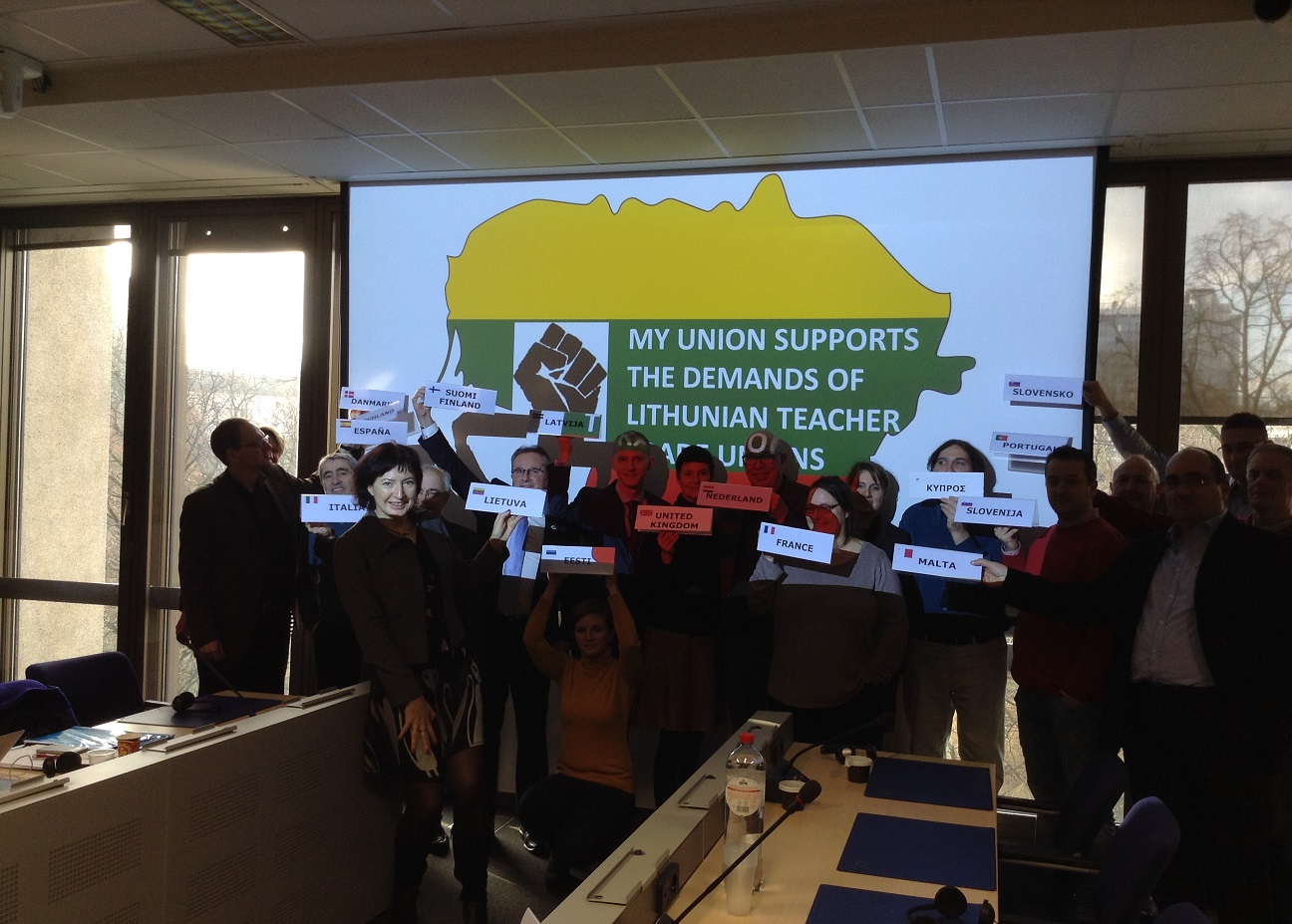Strike of Lithuanian teachers starts on 22 February
Published:
Six teacher trade unions demand that the wages of teachers in Lithuania, which have been frozen for 8 years, would be restored to the level of pre-crisis. Furthermore, they request allocating 3,56 million Euros severance pay for teachers who are at the age of retirement but still at work to be able to leave the system. Teacher unions believe that teachers miss around 600 Litas (174 Euros) in their monthly payment. The unions also demand to reduce the number of pupils in classes and groups.
According to the teacher trade unions, the quality of the Lithuanian education system is deteriorating; Lithuania scores lower each year in international surveys and the students’ learning outcomes remain lower than the PISA OECD average. In addition, the teachers’ employment structure is outdated with an over-reliance on part-time year-to-year contracts without any guarantee for employment the following year.
20% of the workplaces in the education sector are occupied by already retired teachers, which impedes the employment of new teachers. Also, the numbers of pupils and students have been decreasing due to demographics and emigration to other countries, which also has a negative impact on the sector in general and especially on teachers recruitment.
UNESCO’s national report on Lithuania’s progress on implementing “Education for all” strategy underlines that the Lithuanian education system is facing a number of challenges, first of all, due to insufficient and ineffective financing and poor management. “In Lithuania the measures for improving the quality of education are not applied systematically, they are chaotic, some of them conflict with each other, and there is lack of policy stability and continuity” – said Tatiana Babrauskiene, international secretary of FLESTU, a union which represents around 10.000 teachers from all education sectors.
In Lithuania inequality and inaccessibility are observed specially concerning attendance at and quality of small rural schools and access of the socio-economically disadvantaged, particularly of the rural families, to pre-school education. Since few young specialists choose to work in pre-school and pre-primary educational establishments, the staff in early childhood education is elder than the staff in other levels of education.
The funding of general education in Lithuania, which is allocated per pupil, lags seriously behind the EU average. Therefore, although the enrolment rate is positive, more funds should be allocated to improve the quality of education. Moreover, the funds allocated to at least one pupil of ISCED 1 level was increasing every year, yet the funds provided at ISCED 2–3 levels have been shrinking in recent years.
Lithuania's ruling coalition agreed to satisfy some of the teachers' requirements and will assign additional 10 million Euros funding. However, the Ministry for Education and Science says that over 100 million Euros would be needed to satisfy the requirements of the teacher trade unions to improve the education sector and teachers’ working conditions to a full extent.
Teachers’ unions do not believe that additional 10 million Euros promised by the government for education „will save the situation“. “After 2 years of negotiations with the government and after reaching an agreement about the areas what should be improved, the government stated that an extra budget to the education system and to teachers’ salary is not available. Following a warning strike of teacher unions taken place on 8 November 2015, we decided to start a strike for indefinite period on 22 February. We ask all teacher trade unions in Europe to support us in our efforts.” – said Tatiana Babrauskiene.